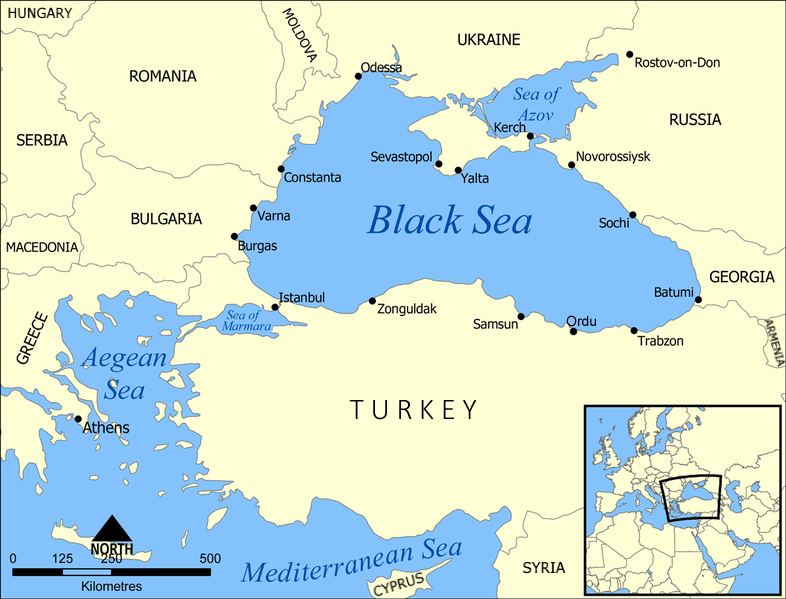UPSC Articles
Loss of the ‘Moskva’ & Black Sea
Part of: GS-II: India and its neighbours
Context: The sinking of the warship Moskva, the 600-foot, 12,500-tonne flagship of the Russian Black Sea Fleet (whether due to a Ukrainian missile strike or, as Russia claims, a fire on board) — is not just a huge symbolic defeat for Russia as it was named after its capital Moscow, but also a serious damage to its dominance in the Black Sea.
- The biggest Russian warship to be sunk in action since World War II.
- On the other hand, it lifts Ukrainian hopes, demonstrating the defenders’ homegrown technological capacity, and exposing a weakness in the Russian navy’s anti-missile defences.
About the Black Sea
- The Black Sea, also known as the Euxine Sea, is one of the major water bodies and a famous inland sea of the world.
- It is a marginal sea of the Atlantic Ocean, located between Eastern Europe and Western Asia.
- The Black Sea is also connected to the Sea of Azov by the Strait of Kerch.
- It is flanked by Turkey in the south, Crimea in the north, Georgia and Russia in the east and Romania and Bulgaria in the west.
Politics around Black Sea
- A busy waterway, Greece controlled it in the 9th century BC and by 500 BC Greek communities took its control. It helped them increase their trade.
- In 1479, the Black Sea came under the control of the Ottoman Empire until it was taken over by the Russian Navy in 1783.
- The 1853-1856 Crimean War saw immense bloodshed to take control of this region. One of Russia’s main reasons for joining World War I was to take over control of the Black Sea.
Significance of Black Sea to Russia
- Not only is the Black Sea an entry point for Russia into the Mediterranean and a buffer between NATO and itself, it also serves as an economic gateway for the country to major markets in southern Europe, as reported by the Deccan Herald.
- Moscow sees the Black Sea as vital to its geo-economic strategy; helps in supplying Russia’s oil and gas to the west.
- Russia depends on the Black Sea for both for military operations outside its immediate neighbourhood and for exports of Russia’s main commodity (hydrocarbons).
- With the breaking away of the USSR, ideally NATO should have been dissolved. But this did not happen. In fact, despite multiple assurances by the US and NATO, it has expanded four times since 1991 and almost reached the doorstep of Russia.
- The Kremlin sees the Mediterranean as a largely NATO-dominated region. So, by increasing its presence in the Black Sea, Russia hopes to spot opportunities to make political, economic, and military inroads with key regional states in the region.
- A domination of the Black Sea and Sea would give Russia a major advantage in the Crimea-Odessa-Mariupol region now that Sevastopol is already under its command.

Pic source: Wikipedia














